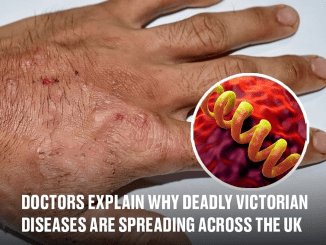Blood cancer, also known as hematologic cancer, includes several types of cancers that affect the blood, bone marrow, and lymphatic system. The three primary types—leukemia, lymphoma, and multiple myeloma—often start quietly, with vague symptoms that can be mistaken for minor issues. That’s what makes it so dangerous. By the time it’s diagnosed, it may already be advanced.
Recognizing the early warning signs could be the difference between catching it early or missing the window for effective treatment. If you know what to look for, you’ll be better prepared to seek help when something feels off. Let’s explore seven critical early signs you should never ignore.
Persistent Fatigue That Just Won’t Go Away

We all get tired from time to time, but blood cancer fatigue is a different beast. This isn’t the “I didn’t sleep well last night” kind of tired. This is a deep, unshakable exhaustion that lingers for days or weeks—even when you’re resting and eating well. Why does it happen? Because your body is struggling to produce enough healthy red blood cells, often due to anemia caused by the cancer itself.
If you feel too drained to perform basic daily activities or constantly need to nap despite a full night’s sleep, don’t brush it off. Chronic fatigue that disrupts your life is a big red flag.
Frequent Infections That Won’t Let Up
Another early symptom of blood cancer is a weakened immune system. Your body’s defense mechanism relies heavily on white blood cells. When cancer affects bone marrow or blood cell production, it compromises your ability to fight off even minor bugs.
Getting sick frequently—or taking unusually long to recover from a simple cold or sore throat—might be more than just bad luck. Infections that become recurring or unusually severe are worth discussing with your doctor.
Unexplained Weight Loss You Didn’t Ask For
Losing weight without trying might sound like a dream come true, but in the context of your health, it’s often a nightmare in disguise. If you’re shedding pounds without changes to your eating habits or exercise routine, it could be a metabolic response to cancer. Cancer cells consume a lot of the body’s energy, which can lead to rapid, unintentional weight loss.
Video : 5 Symptoms That May Indicate Cancer : When to Worry?
So, if the scale drops for no apparent reason, don’t celebrate too quickly—check in with your doctor instead.
Fevers and Night Sweats That Come Out of Nowhere
You might not associate a random fever or a soaked pillowcase with cancer, but they’re two common symptoms of blood cancers like lymphoma and leukemia. These fevers often don’t have a clear source—no cold, no flu, just a creeping temperature that returns night after night.
Night sweats, in particular, can be intense—drenching your clothes and sheets without explanation. If these symptoms show up repeatedly, especially without an infection, they deserve medical attention.
Bruising or Bleeding More Easily Than Usual
Start seeing unexplained bruises on your arms or legs? Notice frequent nosebleeds or bleeding gums when you brush your teeth? These are classic signs of low platelet count—a condition caused by blood cancer that interferes with the blood’s ability to clot.
Bruises that appear out of nowhere or bleeding that’s hard to stop could signal that your blood isn’t functioning properly. These changes shouldn’t be overlooked, especially if you haven’t bumped into anything or made changes to your medications.
Swollen Lymph Nodes That Stay Enlarged

Swollen lymph nodes—especially in the neck, armpits, or groin—are another common early warning sign. In many cases, they may feel like painless, soft lumps under the skin. While swollen nodes can also occur from infections, the difference with blood cancer is that they tend to stick around longer or grow over time.
If you feel swollen glands and they’re not going down after a few weeks, don’t wait. Get them checked out. Lymphoma, in particular, often shows up this way first.
Bone Pain or Unexplained Joint Discomfort
Your bones shouldn’t hurt without a good reason. If you start experiencing persistent, aching pain in your bones or joints—especially in your back, ribs, or legs—it could be more than simple wear and tear. Blood cancers like leukemia and multiple myeloma can crowd the bone marrow, leading to pain and discomfort.
This symptom often gets brushed off as aging or arthritis, especially in adults over 40. But if the pain is new, unusual, and persistent, it’s time to pay attention.
Why Early Detection Matters More Than Ever
The tricky part with blood cancer is how easy it is to mistake these symptoms for something else—stress, aging, the flu. But these seemingly minor issues can be the body’s first SOS signal. Catching them early increases the chances of successful treatment, better outcomes, and a smoother recovery.
If any of these symptoms show up in your life—or stick around longer than they should—don’t delay. Talk to your doctor. Ask for blood tests. Push for answers. It’s your body, and you know when something doesn’t feel right.
Video : Top 10 Anti Cancer Foods (Part 1) – YOU NEED TO EAT THESE!
Conclusion
Blood cancer isn’t picky. It can affect men, women, young people, and seniors. The key is to stay aware, stay informed, and stay proactive. These seven early signs—persistent fatigue, frequent infections, unexplained weight loss, fever or night sweats, easy bruising or bleeding, swollen lymph nodes, and bone pain—are your early warning system.
They don’t always mean cancer. But if they persist, overlap, or start affecting your quality of life, they absolutely warrant a conversation with a healthcare professional. The sooner you know, the more power you have to act—and possibly save your life.
Listen to your body. And don’t ignore what it’s trying to tell you.


